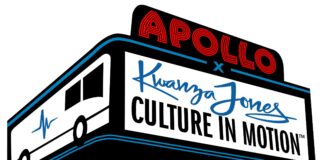The New York StateWide Senior Action Council’s
“Medicare Fraud of the Month for April”
ALBANY, N.Y., April 10, 2025 /PRNewswire-HISPANIC PR WIRE/ — The New York StateWide Senior Action Council (StateWide), a 53-year-old non-profit organization dedicated to serving the needs and well-being of our State’s approximately 2.5 million senior citizens today announced its Medicare Fraud of the Month for April: Medical Identity Theft.
The StateWide Fraud of the Month is a component of the Senior Medicare Patrol (SMP), the definitive resource for New York State’s older adults and caregivers to detect, prevent, and report healthcare fraud, errors, and abuse. StateWide is New York’s grantee/administrator for this Federal Program.
“Medical Identity Theft occurs when someone uses a senior’s personal health information—like a name or Medicare number — to fraudulently bill for services or supplies never received, such as treatments, equipment, or surgery,” explained Maria Alvarez, Executive Director of the New York StateWide Senior Action Council. “Medical Identity Theft can affect the elderly’s finances, and also can put their health at risk, “she added.
Alvarez advises older adults to be aware of the following warning signs of Medical Identity Theft:
- Receipt of a bill for medical services never performed or received.
- Insurance denies coverage or limits benefits due to a non-existing condition.
- A debt collection agency contacts seniors about medical expenses not recognized.
Unauthorized use of an elder’s identity to get medical care, false details—like the wrong blood type, fake diagnoses, or incorrect test results—can end up in their records. This can lead to denied services, delays in care, or even harmful treatments based on someone else’s medical history.
SMP Advises How to Protect Against These Scams:
- Seniors should not share their Medicare number with anyone except their doctor, health care provider, or someone trusted.
- Medicare cards should be treated like credit cards — kept safe and private.
- Avoid “free” offers for testing, treatments, or supplies from unknown individuals.
- For example, scammers may offer “free” flex cards or grocery cards in exchange for Medicare numbers.
- Do not let anyone borrow or pay to use personal Medicare numbers or identities.
- For example, scammers may offer “free” flex cards or grocery cards in exchange for Medicare numbers.
- Only buy medical supplies from verified sources, not from ads, emails, or unsolicited phone calls.
- Routinely check Medicare Summary Notices (MSNs) and Explanation of Benefits (EOBs) for services or equipment not received.
- If a Senior is contacted by a scammer or suspects Medicare fraud, it should be reported to the NYS Senior Medicare Patrol (SMP)! Call its Helpline at 800-333-4374.
“We have trained counselors to help educate Medicare beneficiaries in the fight against health care fraud. To report Medicare fraud, errors or abuse you can call our NYS Medicare Fraud Helpline at 800-333-4374 or visit www.nysenior.org,” Alvarez concluded.
StateWide also provides information and educational presentations, assistance regarding any Medicare questions, plan comparisons, appeals, billing issues and patients’ rights to all seniors throughout New York State.
It is estimated that Medicare fraud costs taxpayers over $60 billion dollars nationally per year. To help combat this illicit industry StateWide announced its Fraud of the Month program in 2022 to highlight these scams being perpetrated on the State’s seniors.
SOURCE New York StateWide Senior Action Council, Inc.




